Hearing loss is more common than many people realize. According to the World Health Organization, over 430 million people worldwide live with disabling hearing loss, and the numbers continue to rise due to aging populations, noise exposure, and lifestyle factors. While modern treatments like hearing aids and medical interventions are effective, many people still look for natural ways to protect and support their hearing.
This is where traditional remedies come into focus. For centuries, garlic and onions have been used not just as food but as medicine. Rich in sulfur compounds, antioxidants, and anti-inflammatory agents, these kitchen staples have long been associated with ear and immune health. Some families even passed down recipes using garlic oil or onion juice drops for ear discomfort.
But what does science say? And how can you safely use these natural remedies today? This article will explore the connection between garlic, onions, and hearing health—sharing practical tips, traditional insights, and lifestyle strategies that may help you preserve your hearing naturally.
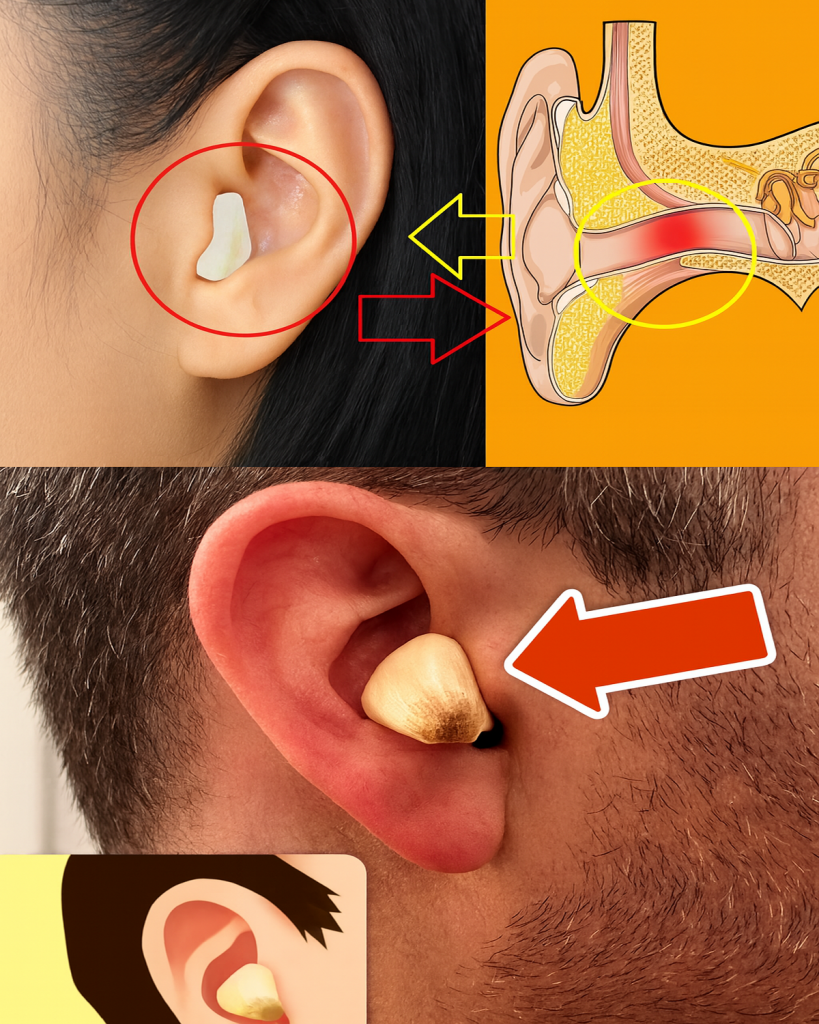
Why Hearing Health Matters
The ability to hear affects more than just communication—it impacts safety, mental health, and overall quality of life. Untreated hearing loss has been linked to:
- Social isolation and depression
- Cognitive decline and memory problems
- Increased risk of accidents
Supporting hearing health through both medical care and natural habits ensures you stay active, connected, and independent.
Garlic: Nature’s Antimicrobial Powerhouse
Garlic has been celebrated for its healing potential for thousands of years. Ancient Egyptians, Greeks, and Chinese healers used it to treat infections and boost immunity.
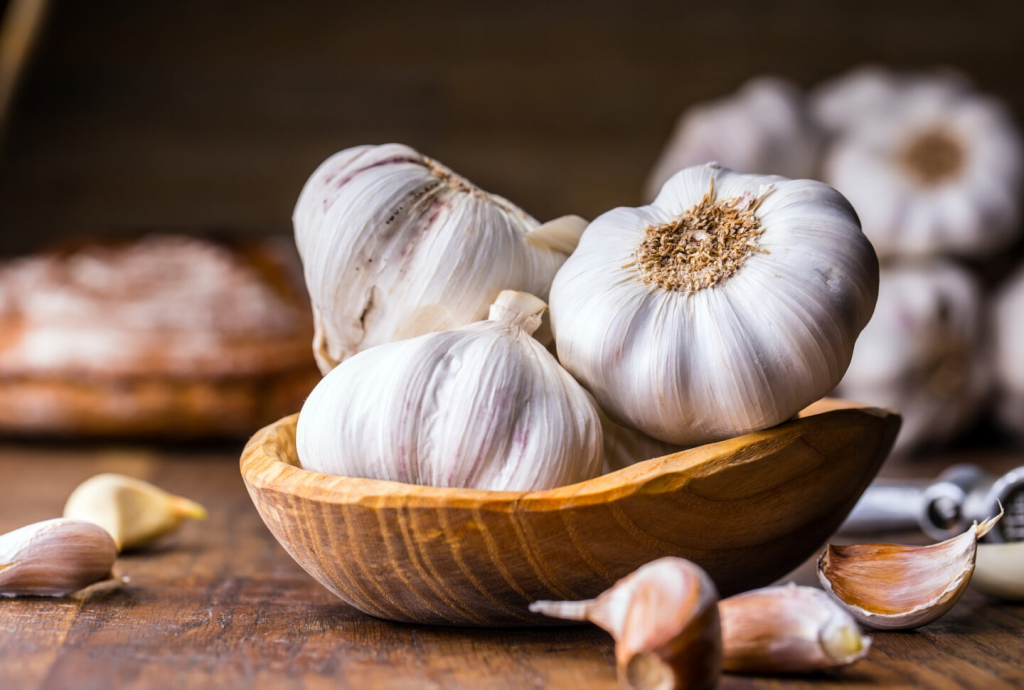
Key Compounds in Garlic
- Allicin: Known for strong antimicrobial properties.
- Sulfur compounds: Support circulation and reduce inflammation.
- Antioxidants: Protect cells, including those in the delicate inner ear.
Potential Benefits for Hearing
- Improved Blood Flow: Healthy circulation delivers nutrients and oxygen to the inner ear.
- Infection Support: Garlic’s antibacterial properties may reduce the risk of ear infections, which can cause temporary or long-term hearing issues.
- Anti-Inflammatory Action: Helps calm swelling in the auditory canal.
Traditional Use: Some families prepared garlic-infused oil drops, applying a few warm drops in the ear to relieve discomfort.
Onion: The Overlooked Ally for Ear Health
Onions may not get as much attention as garlic, but they also contain beneficial compounds.
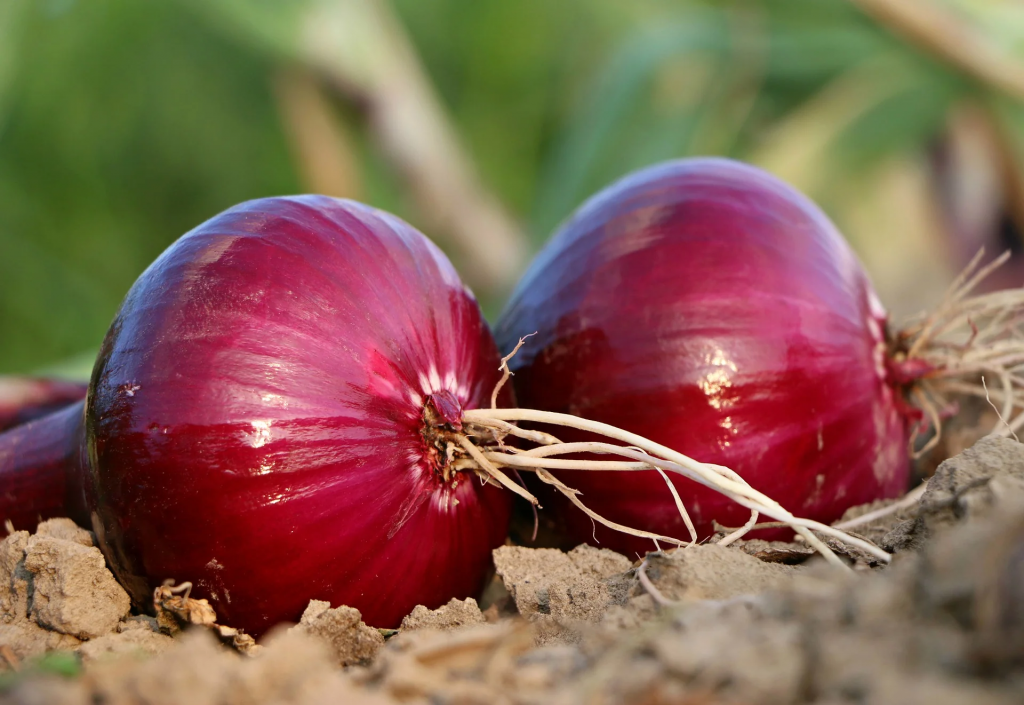
Key Compounds in Onions
- Quercetin: A flavonoid with strong antioxidant effects.
- Sulfur-based compounds: Similar to garlic, offering antimicrobial support.
- Vitamin C: Contributes to immune health.
Potential Benefits for Hearing
- Ear Infection Relief: Onion juice drops have been used in folk medicine for earaches.
- Antioxidant Protection: Helps prevent oxidative stress, which damages inner ear cells.
- Mucus Reduction: Useful in clearing congestion that can affect middle ear function.
Traditional Use: Warm onion juice applied carefully around the ear was a common household remedy for earaches in some cultures.
Combining Garlic and Onion: The Traditional “Secret”
When garlic and onion are used together, their benefits may complement each other.
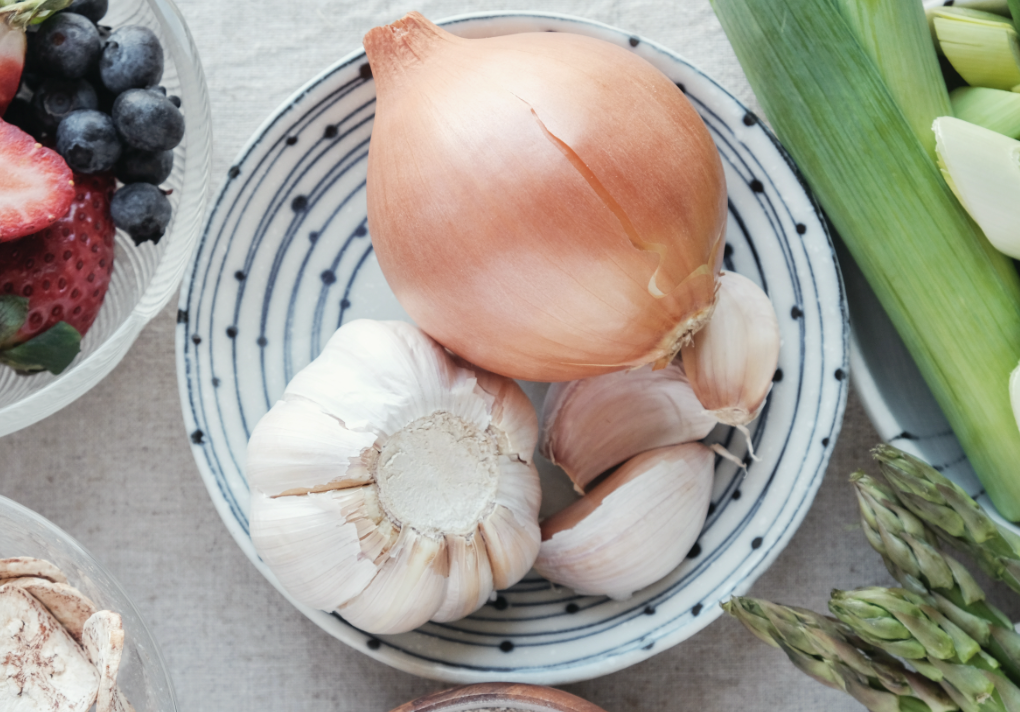
Why They Work Together
- Both contain sulfur compounds, boosting antimicrobial and anti-inflammatory power.
- Garlic improves circulation, while onion helps reduce mucus and congestion.
- Together, they provide a wide spectrum of antioxidants.
Simple Home Preparation
- Crush 2 cloves of garlic and 1 small onion.
- Warm gently in 2 tablespoons of olive oil for 10 minutes (do not fry).
- Strain and let cool.
- Use as a massage oil around the outer ear and jawline.
Note: Avoid dropping raw mixtures directly into the ear canal without professional guidance. Improper use can cause irritation or damage.
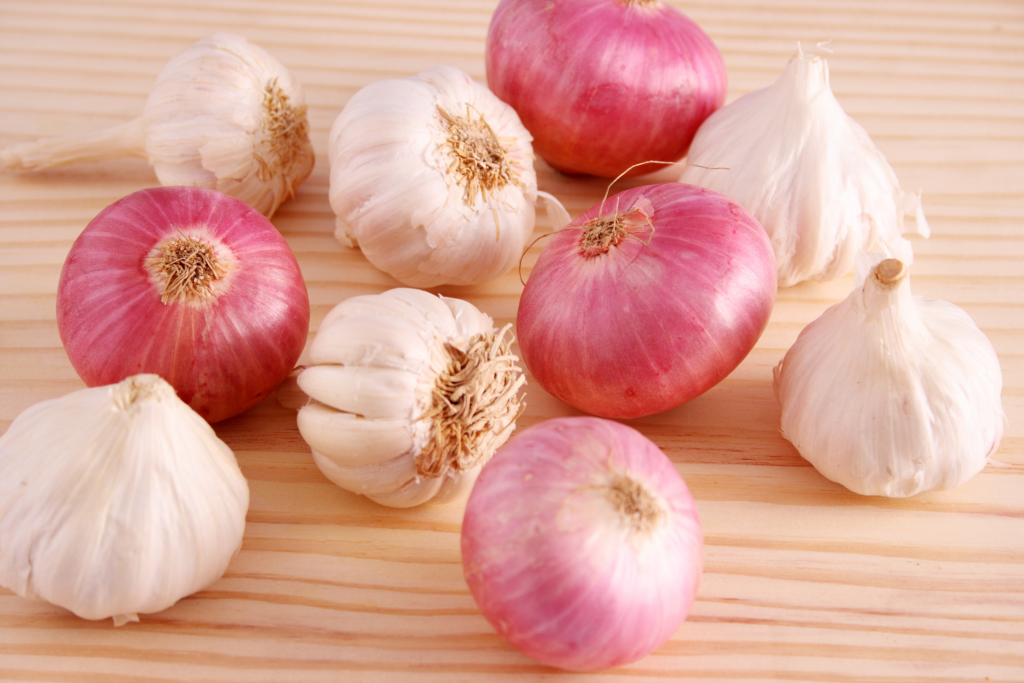
What Science Says
While anecdotal reports are strong, scientific research is still developing.
- A study in Phytotherapy Research noted garlic extracts reduced bacterial growth linked to ear infections.
- Onion extracts have shown antioxidant and anti-inflammatory activity in laboratory studies.
- However, no large-scale clinical trials confirm garlic and onion as direct cures for hearing loss.
What science supports is their role in general immune support, circulation, and microbial defense—all of which indirectly benefit hearing health.
Lifestyle Habits to Support Hearing Naturally
Beyond garlic and onion, overall lifestyle plays a critical role in hearing preservation.
Protect Your Ears
- Avoid prolonged exposure to loud music or machinery.
- Use ear protection when needed.
Maintain a Healthy Diet
- Eat foods rich in omega-3 fatty acids (fish, flaxseeds).
- Add leafy greens, berries, and nuts for antioxidants.
Stay Active
- Regular exercise improves circulation to the ears.
Regular Checkups
- Visit an audiologist for early detection of hearing issues.
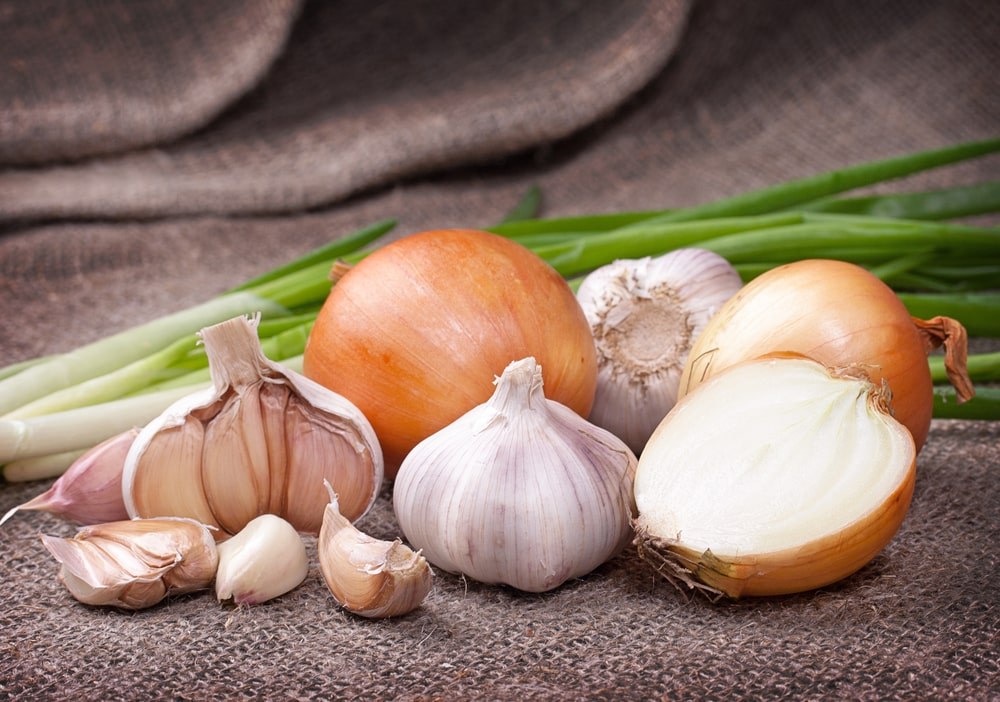
| Habit | Why It Matters |
|---|---|
| Ear protection | Prevents noise-induced hearing loss |
| Healthy diet | Supports blood flow and cell repair |
| Exercise | Improves circulation |
| Checkups | Detects issues early |
A Real-Life Story: Daniel’s Experience
Daniel, a 60-year-old farmer, often suffered from recurring ear infections during rainy seasons. His grandmother taught him to use warm garlic and onion oil around his ears. While it didn’t replace medical treatment, he noticed fewer infections and less discomfort. Combined with his doctor’s advice, this traditional remedy became part of his wellness routine.
His story illustrates how natural remedies can complement—not replace—modern care.
Common Myths vs. Facts
- Myth: Garlic and onion can cure deafness.
Fact: They may support ear health but cannot reverse permanent hearing loss. - Myth: Putting raw garlic cloves in your ear is safe.
Fact: This can cause burns or irritation. Oils should be used cautiously and externally. - Myth: Natural means risk-free.
Fact: Even natural remedies can cause side effects if misused.
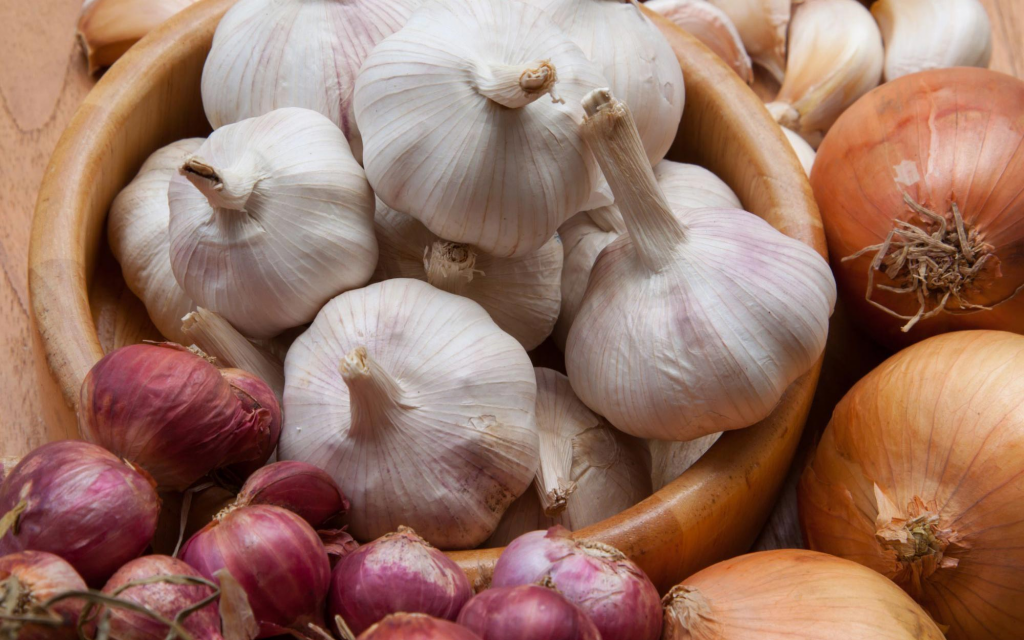
Conclusion
Can garlic and onion really restore hearing?
They may support ear health and reduce infection risks but cannot cure permanent hearing loss.
Are they safe to use?
Yes, when prepared properly and applied externally. Avoid placing raw substances directly in the ear canal.
Should I rely only on home remedies?
No. Always seek professional advice for persistent or serious hearing problems.
Why try them at all?
Because they’re natural, accessible, and may complement your healthcare routine when used responsibly.
This article is for informational purposes only and does not replace professional medical advice, diagnosis, or treatment. Always consult a qualified healthcare provider before trying new remedies, especially if you have chronic conditions or existing hearing concerns.




